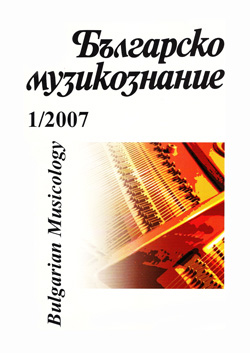Музикална фолклористика и етномузикология
Musical Folkloristics and Ethnomusicology
Author(s): Svetlana ZaharievaSubject(s): Music
Published by: Институт за изследване на изкуствата, Българска академия на науките
Summary/Abstract: At the end of the 19th century, ethnomusicology, then known by the name of “comparative musicology,” was established as an independent discipline among the Western European musical sciences. This new field’s primary object of research was non-European music, whether it be professional, traditional, or the music of tribal societies. At the same time, modem nation-states were being founded on the territory of the European continent, each with its own national culture. In this cultural-historical context, interest in, respect for, and even a cult of “one’s own” musical folklore was awakened, since such folklore was considered a national musical-cultural treasure. In this way, the specificity of musical folkloristics as an academic discipline appeared and was developed. It became a regional variant of ethnomusicology, whose representative forms can be found in the countries of Central and Eastern Europe, Scandanavia, and the Balkans, i.e. in the “cultural periphery” of Europe (P. Burke). Three genetically underlying structural and thematic characteristics can be identified in the national schools of folkloristics (including Bulgarian folkloristics) that appeared in this way. These three characteristics include a) the choice of subject matter (namely, national musical folklore); b) scientific method (comparison as a way of identifying the specific characteristics and uniqueness of a given musical folklore); and c) nationalist ideology (considering native folklore as a foundational m usical-artistic treasu re vital to the establishment of a national musical culture).
Journal: Българско музикознание
- Issue Year: 2007
- Issue No: 1
- Page Range: 20-33
- Page Count: 14
- Language: Bulgarian
- Content File-PDF

